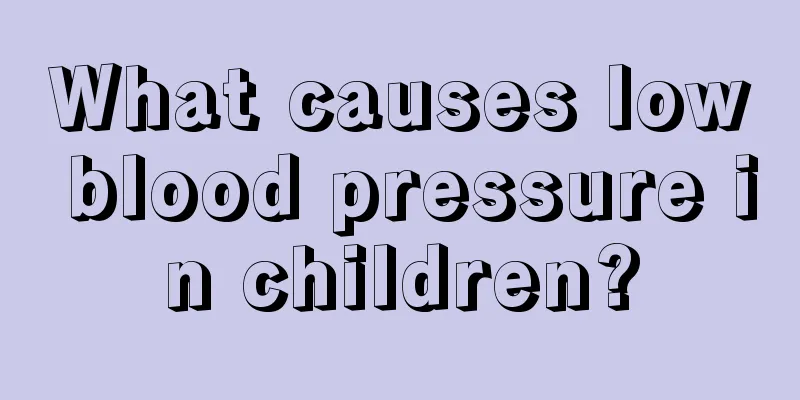What are the dangers of fetal hypoxia?

|
Pregnancy is not an easy thing. For this reason, many pregnant women will be particularly careful during the pregnancy process to supplement various nutrients and promote the development of the baby. However, in some special cases, the fetus may have certain problems. For example, fetal hypoxia is a very serious condition. If the fetus suffers from long-term hypoxia, it may even lead to fetal death, permanent brain damage, and even endanger the life of the mother. 1. Death Fetal distress mainly occurs during labor, but can also occur in late pregnancy. Those that occur during labor may be a continuation and aggravation of those that occur in late pregnancy. Fetal distress is common in the prenatal period, mainly manifested by placental insufficiency. Fetal death : Pathophysiological high-risk pregnancy, such as gestational hypertension, chronic hypertension, nephritis, diabetes, heart disease, asthma, severe anemia, overdue pregnancy, etc., or due to vascular disease that reduces uterine blood flow, or due to placental degeneration, or due to low blood oxygen concentration, the fetus cannot get enough oxygen, causing fetal growth retardation, polycythemia, decreased fetal movement, and even severe fetal distress, causing fetal intrauterine death. Neonatal death : Fetal distress and birth asphyxia are both important causes of perinatal death and neurological sequelae, accounting for the first cause of perinatal death. When the fetus has mild ischemia or early ischemia, the main manifestations are vasodilation of important organs such as the heart, brain, and adrenal glands, and contraction of peripheral blood vessels such as the liver, kidneys, intestines and limbs to ensure the normal function of important vital organs; when the fetus is in a state of hypoxia for a long time, the ischemia is further aggravated and heart failure occurs. Coupled with the secretion of local vasoactive substances, the blood flow to all organs decreases. At this time, the fetus is in an irreversible damage stage, which endangers the life of the perinatal baby and can even lead to the death of the newborn in severe cases. 2. Permanent brain damage The brain is an organ that is most sensitive to ischemia and acidosis. There are many factors that cause brain damage, and fetal hypoxia is one of them. Ischemic and hypoxic encephalopathy is the most serious complication of fetal distress. There are two types of brain tissue damage caused by fetal hypoxia: the first is functional damage. Long-term follow-up of fetuses with mild or chronic fetal distress and fetal growth restriction shows that their subsequent intellectual development is lower than that of normal fetuses. The second is organic damage. In severe brain hypoxia, it is easy to cause complications such as cerebral edema, brain cell necrosis, and cerebral hemorrhage, which is called ischemic and hypoxic encephalopathy. If fetal hypoxia is treated promptly and recovered, and only temporary damage is caused to the fetal brain, the fetus will recover in about a week of treatment. If the fetus is deprived of oxygen for a long time, the brain cells in the fetus will be deformed and necrotic, and it will be difficult to recover in the short term. In more serious cases, permanent brain damage will occur. 3. Endangering the life and health of pregnant women Severe fetal hypoxia may directly cause miscarriage, premature birth or even intrauterine fetal death in pregnant women, endangering the health of the mother. For pregnant women with chronic diseases such as heart, lung, and kidney diseases, pregnancy increases the burden on organs such as the heart, lung, and kidney, which may lead to organ failure, thus putting their lives in danger. |
<<: What does a high fetal umbilical artery SD value indicate?
>>: What are the remedies and prevention methods for fetal growth restriction?
Recommend
What should children eat if they have a broken bone?
The elderly are a relatively special group. Due t...
Why does the baby sneeze?
Every baby will become the focus of every family,...
Is it normal for a nine month old baby to drool?
Female comrades who have become mothers will unde...
What to do if your 11-year-old child wets the bed
For an 11-year-old child, if the bedwetting pheno...
What should we do if children have deformed teeth?
As technology in our daily lives becomes more and...
Why does my baby move around when sleeping?
Many people pay close attention to their babies, ...
What is gastroesophageal reflux disease in children
Maybe you are not very familiar with childhood ga...
How to clean baby's stool
If infants and young children have bad bowel move...
What should children with allergic purpura pay attention to in their diet
When babies are young, because of their poor immu...
What to do if your two-year-old baby has a fever
Children around one year old are still relatively...
What is the cause of snoring in the newborn's throat?
Since babies are not fully developed in all aspec...
What is the best time to supplement calcium for newborns?
We all know that the baby's growth has a part...
What will happen if your baby is allergic to medicine?
We all know that babies grow and develop very fas...
How many times a day is normal for a baby to poop?
The physical symptoms reflected by the baby's...
What causes goose bumps on children's skin?
Children may also experience goose bumps on their...









